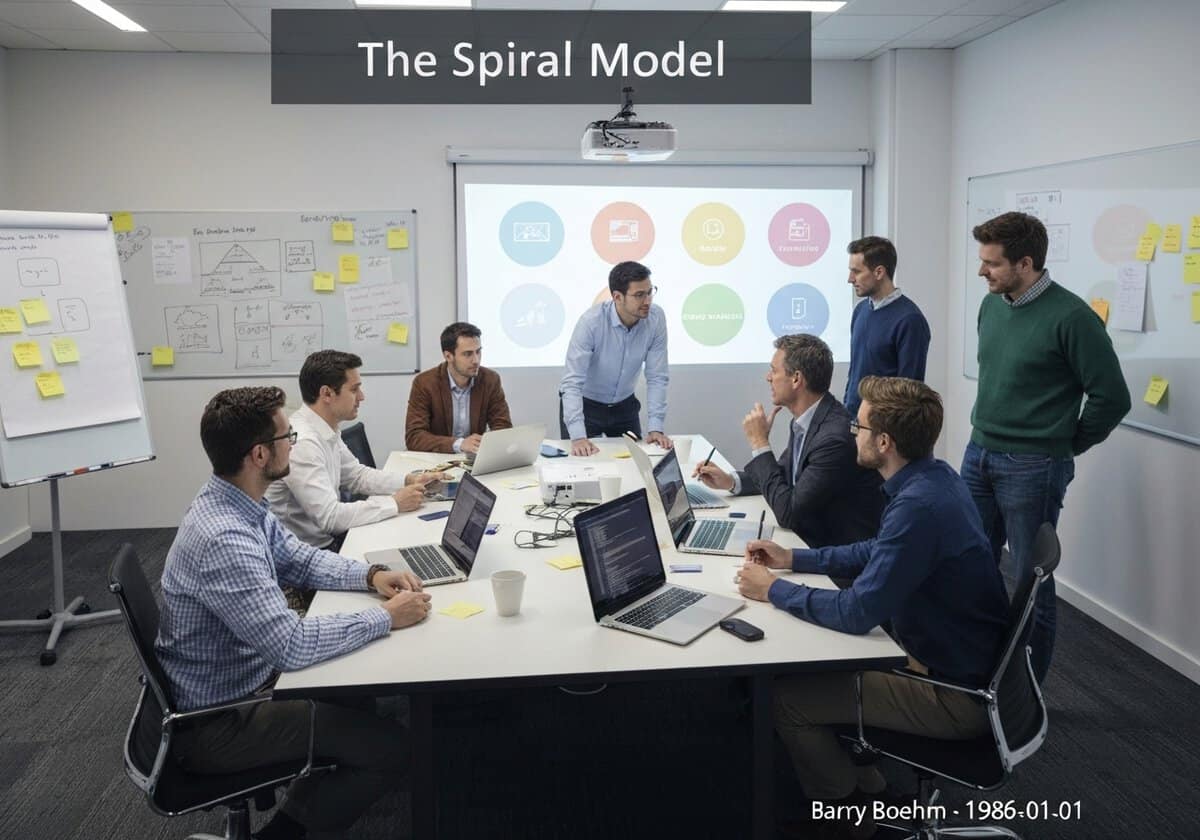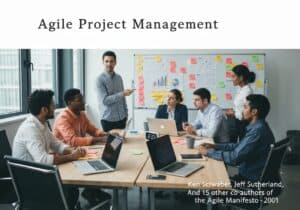The Spiral Model is a risk-driven software development process model that combines elements of both prototyping and the waterfall model. It is a type of iterative development where the project passes through four phases in each iteration (spiral): determine objectives, identify and resolve risks, develop and test, and plan the next iteration. It emphasizes continuous risk analysis.
The Spiral Model (SW process)
- Barry Boehm

Introduced by Barry Boehm in 1986, the Spiral Model was designed to address the shortcomings of the traditional Waterfall model, particularly for large, complex projects. Each loop of the spiral represents a phase of the برمجة process. Unlike other models, it doesn’t start with a full set of requirements. Instead, the initial spiral might focus on developing a proof-of-concept to test feasibility. Each subsequent loop builds upon the last, moving from a conceptual level to a fully engineered product. The four key activities in each cycle are: 1) Determine objectives, alternatives, and constraints for the iteration. 2) Evaluate alternatives; identify and resolve risks. This is the most critical part, involving activities like prototyping, simulation, and benchmarking to mitigate high-risk elements. 3) Develop and verify the next-level product. This involves the actual coding, integration, and testing, similar to a mini-waterfall process for that iteration’s deliverable. 4) Plan the next iteration. The project is reviewed, and plans are drawn up for the next spiral. This model allows for the incremental release of the product and refinement of requirements throughout the development lifecycle, making it highly flexible and suitable for projects where risk management is paramount.
النوع
الاضطراب
الاستخدام
السلائف
- waterfall model
- prototyping models
- risk management principles
- incremental development models
التطبيقات
- large, expensive, and complicated government projects
- high-risk software development
- projects where requirements are unclear or complex
- research and development projects
براءات الاختراع:
أفكار ابتكارات محتملة
!!مستويات !!! العضوية مطلوبة
يجب أن تكون عضوًا !!! مستويات!!! للوصول إلى هذا المحتوى.
متاح للتحديات الجديدة
مهندس ميكانيكي، مشروع، هندسة العمليات أو مدير البحث والتطوير
متاح لتحدي جديد في غضون مهلة قصيرة.
تواصل معي على LinkedIn
تكامل الإلكترونيات المعدنية والبلاستيكية، التصميم مقابل التكلفة، ممارسات التصنيع الجيدة (GMP)، بيئة العمل، الأجهزة والمواد الاستهلاكية متوسطة إلى عالية الحجم، التصنيع المرن، الصناعات الخاضعة للتنظيم، شهادات CE وFDA، التصميم بمساعدة الحاسوب (CAD)، Solidworks، الحزام الأسود من Lean Sigma، شهادة ISO 13485 الطبية
احصل على جميع المقالات الجديدة
مجاني، لا يوجد بريد عشوائي، ولا يتم توزيع البريد الإلكتروني ولا إعادة بيعه
أو يمكنك الحصول على عضويتك الكاملة -مجانًا- للوصول إلى جميع المحتويات المحظورة >هنا<
الاختراع والابتكار والمبادئ التقنية ذات الصلة














